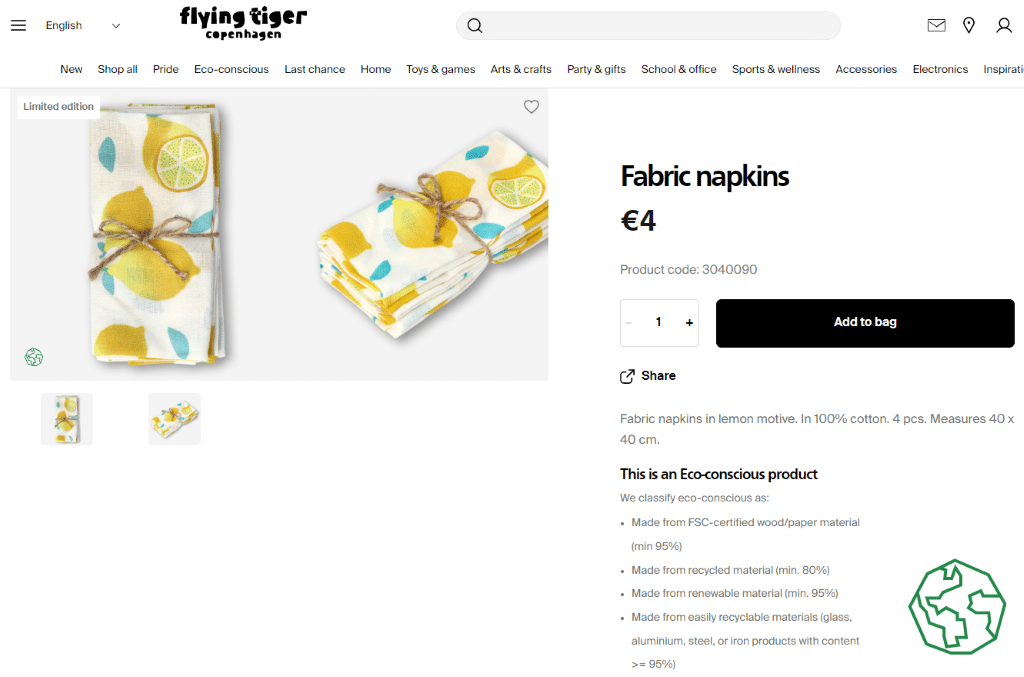7 Hottest eCommerce Marketing Trends 2022

One of the hottest trends in fashion for summer 2022 is the color: lime green. But not only that, but it’s also hot pink, daffodil yellow, sky blue, and other colors with current surnames🙂. Okay, but what does that have to do with the Hottest eCommerce Marketing trends. Good question. Similar to fashion, also for the hot trends in eCommerce marketing, the names of the trends are more or less the same: Shoppable video, AI, Affiliate Marketing, Buy now pay later, Sustainability eCommerce, and more. But the latest developments in eCommerce marketing are what make them hot trends. What eCommerce marketing trend will we focus on in 2022?
7 eCommerce marketing trends 2022
1. Shoppable video
2. AI
3. Native Ads
4. SEO
5. Affiliate Marketing
6. Sustainable eCommerce
7. Buy now pay later
eCommerce marketing trend 1: Shoppable video
In 2022, Shoppable video will become easier than ever thanks to two giants: Instagram and Tiktok. Instagram with Instagram Shopping and Tiktok collaboration with Spotify, the eCommerce platform. The new buyers, Generation Z, are more than ever on social media and prefer to search and purchase without leaving these platforms. Almost 60% of Generation Z in the US now prefer to search for brands on Instagram than on search engines and also prefer video content over other content.
eCommerce marketing trend 2: AI
Another interesting eCommerce marketing trend is artificial intelligence -AI. All areas of marketing that use technological tools to predict consumer behavior will continue with us strongly in 2022. One of the tools is, of course, the Chatbot. The Chatbot has become a powerful marketing tool that gives an excellent response without the need for a human response. By 2023, forecasts predict that the value of eCommerce transactions due to using chatbots will reach $ 112 billion. Other marketing tools that are constantly improving due to artificial intelligence are email newsletter services. Seventh Sense, for example, has developed a product that connects to email marketing platforms, such as Hubspot and Marketo, and improves the average email open rate and the conversion rate. And all thanks to the use of artificial intelligence.
eCommerce marketing trend 3: Native Ads
Let’s start with the following statistic: More than 40% of Internet surfers use various ad blockers. A second before we transfer half of the budget to the human resources department 🙂 There is another way to promote eCommerce products in “elegance” – Native Ads. What are Native Ads? Native advertisements are advertisements that integrate organically and do not interfere. An example of native advertisements is “sponsored content” articles. For example, suppose we have an eCommerce website for sunglasses. In that case, an article about the new trends in sunglasses fashion published on a leading fashion blog is an example of a sponsored content article that does not interfere and integrates naturally on the site. The leading companies in the field of native advertising are Outbrain, Tabula, and Yahoo Gemini
Another interesting eCommerce marketing trend is artificial intelligence -AI. All areas of marketing that use technological tools to predict consumer behavior will continue with us strongly in 2022
eCommerce marketing trend 4: SEO
If only we could bring Google Flowers & Chocolate and be done with it. Google’s search engine is the largest display window in the world, and everyone wants to appear on it. And not just to appear, on the first page, of course! At the beginning of their journey, eCommerce sites often neglect the customer’s initial search process. Google!!! So what awaits us in 2022 in the field of SEO for eCommerce websites? Connecting a brand to search terms, investing in creating high-quality targeted content, investing in creating video content with an emphasis on relevant search terms, backlinks, recommendations, reviews, and other ways to prove that your site meets Google’s quality standards
eCommerce marketing trend 5: Affiliate Marketing
Let’s start with the basics. What is Affiliate Marketing for eCommerce stores?
Suppose I have an online store for orange toys ↓ I have little money to advertise my store, and my SEO efforts haven’t shown results yet. In short, no one knows me. And even though I’m really, really trying, no one buys even one orange balloon. This is exactly why affiliate marketing was invented. “Affiliates” are like your salespeople. They distribute your products in their digital sphere in exchange for a sales commission.

Affiliate marketing is responsible for 16% of global eCommerce sales.
eCommerce marketing trend 6: Sustainable eCommerce
Sustainable eCommerce marketing refers to all the ways companies promote the issue of sustainability as part of their marketing strategy. If in the past, companies could support the idea of sustainability as part of a marketing gimmick like, for example, asking customers to bring old clothes and get a discount. Today, the leading eCommerce stores understand the growing importance of the field of sustainability in the eyes of consumers. And in many eCommerce sites, you can see a Sustainability button in the top bar. Example of Sustainability eCommerce: The Flying Tiger Copenhagen website has an eco-conscious button on the top bar that refers to all products that meet sustainability standards by the company’s definition. Each product in the category has a sustainability specification that indicates data such as the percentage of recycled material, percentage of renewable material, etc

eCommerce marketing trend 7: Buy now, pay later
A hot trend in eCommerce that Generation Z likes is, without a doubt, Buy now, pay later. It is estimated that more than 55% of Generation Z in the US will use the service at least once.
What is Buy now, pay later?
Buy Now, Pay Later is a short-term financing service that allows consumers to make purchases and pay for them at a future date or divide the payment into several payments. It’s another Payment option. For example, at the end of the purchase process in the Sephora store, where you enter a credit card or PayPal, you will see another payment option via Klarna or afterpay (the leading companies in the field).
Buy Now, Pay Later is a short-term financing service that allows consumers to make purchases and pay for them at a future date or divide the payment into several payments.

Questions that are relevant to the topic:
What are examples of sponsored content?
Suppose we have an eCommerce website for sunglasses. In that case, an article about the new trends in sunglasses fashion published on a leading fashion blog is an example of a sponsored content article that does not interfere and integrates naturally on the site. The leading companies in the field of native advertising are Outbrain, Tabula, and Yahoo Gemini
What is Sustainability Marketing?
Example of Sustainability Marketing: The Flying Tiger Copenhagen website has an eco-conscious button on the top bar that refers to all products that meet sustainability standards by the company’s definition. Each product in the category has a sustainability specification that indicates data such as the percentage of recycled material, percentage of renewable material, etc




Updated:
03, 2022